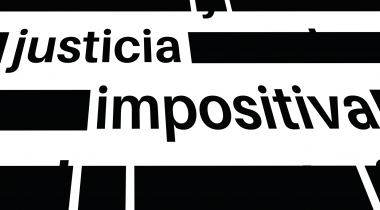
Naomi Fowler ■ Whistleblower Rudolf Elmer’s court victory: the long arm of Swiss secrecy law gets shorter

We’ve written many times about Swiss whistleblower Rudolf Elmer’s (pictured above) long legal battles against Swiss banking secrecy here, here, here and here. He’s endured 48 prosecutorial interrogations, 6 months in solitary confinement and 70 court rulings. Of one thing you can be sure – if the Swiss bank he worked for and the Swiss authorities thought it’d be easy to defend banking secrecy and the terrible harm it does, they picked the wrong person to fight. There are those who would have you believe that Swiss banking secrecy is over, but we can assure you that’s far from the case. Switzerland is still ranked number one in our Financial Secrecy Index. Let’s see how it does in our next assessment, due in 2020.
This October Elmer has achieved a significant victory against Swiss banking secrecy laws and how far they can be applied in jurisdictions across the world. He worked for Swiss bank Julius Bär in the Cayman Islands when he leaked data on wrongdoing. Now the Swiss Supreme Court has ruled that if employment contracts in locations outside Switzerland are local, Swiss banking secrecy doesn’t apply and can no longer be used to impose jail terms on whistleblowers. This is how the Economist covered the case:
The country’s supreme court decides that overseas employees of Swiss banks can leak away”
We’re also sharing here an English translation of a report by Swiss law professor Werner Kallenberger, published on 25th October 2018 here, in Die Linke Zürcher Zeitung.
Court decision in the case of whistleblower Elmer clarifies the territorial application of Swiss banking secrecy
The criminal chamber of the Federal Court on 10 October 2018 – after a public hearing before judges (lasting 150 minutes – without the parties present) – by 3 votes to 2 gave a groundbreaking judgment in the case of Rudolf Elmer regarding violation of bank secrecy, and other matters. Most importantly, the charge of violation of Swiss bank secrecy alleged against the well-known whistleblower Elmer brought by the Higher Prosecution Office of the Canton of Zurich was rejected by the Federal court and the acquittal of Rudolf Elmer by the High Court of the Canton of Zurich was confirmed.
The Federal Court also upheld the complaint by Rudolf Elmer concerning the imposition of an advance payment for the release of confiscated data and documents as well as the modalities for the return of the personal data of the Elmer family. His complaint against the imposition of three-quarters of the costs of the case, including the investigation costs, in the amount of CHF 320,000, and against the penalty for convictions for document forgery and threatening behaviour, were rejected by the Federal court.
A detailed legal commentary on this 14-year judicial and media scandal will only be possible after the written judgment is published. However, as soon as the decision was announced the Swiss banking lobby expressed outrage at the serious implications of this “political” legal ruling by our highest Court in Switzerland. According to the two minority judges in the case, adherents of the SVP, Elmer was sent as a kind of a “trustee” on behalf of the Bank Bär & Co. AG in Zurich to its affiliate in the Cayman Islands. [The SVP, the Schweizerische Volkspartei, is the most conservative Swiss Political People Party, which tried to have Swiss bank secrecy enshrined in the Swiss Constitution a few months ago.] Hence, they argued, Elmer was subject to the Swiss banking law and violated section 47 of the Swiss Banking Secrecy Act by making client information public on WikiLeaks.
What remains inexplicable to me, as a former district attorney (today called a prosecutor) about this very expensive and years-long legal and political grotesquery, are the following key points. When a criminal investigation is opened, it must always first be determined who is responsible for the case, and in which legal jurisdiction. In accordance with laws and accepted practice, the place where the acts took place, the nationality and the status of the accused person, as well as any contractual conditions, are relevant considerations. When, as in the present case, a person such as Elmer, employed by a foreign company (Julius Baer Bank and Trust Company Ltd., Cayman Islands), doing business for clients through an obvious tax evasion offshore company, Swiss law does not apply.
This was already known on the record to representatives of Julius Bär Bank & Co. AG, Zurich and the Swiss Public Prosecutor’s Office back in 2009. Nevertheless, during this grotesque legal procedure, the Attorney General in Georgetown initiated a criminal investigation, without ending the Swiss proceedings. It is also inadmissible to be prosecuted for the same (alleged) offense in two cases in two countries. All of this apparently did not occur to the numerous well-paid judges, prosecutors and judicial officials in this monstrous process, which amassed a total of 140 dossiers. On the contrary, the prosecution repeatedly suppressed files, which were never punished even after complaints by Elmer. The enormous investigation costs amounted, according to the Zurich Supreme Court, to just under 4 million CHF. Exemplary work was done, however, by the dedicated, able, and inexpensive official defense lawyer Ganden Tethong.
Two well-founded psychiatric evaluations established that Elmer was suffering from post-traumatic stress disorder (PTSD), which was not taken into account as affecting his mental state in sentencing him for threats and falsification of documents. When someone is wrongly accused of alleged breach of Swiss Bank Secrecy, is kept in detention for 220 days, is under psychiatric treatment, and is then obliged to attend a hearing in the district court of Zurich and collapses after an hour due to health problems, all the legal and psychological alarm bells should have sounded to stop the proceedings. However, there was an overriding pressure to complete the case within the statutory time limitation. Therefore, the president of the Higher Court of Zurich, Peter Marti, formally instructed the prosecutor no longer to investigate the alleged offense of violation of Swiss Bank Secrecy himself, but to report on it weekly to the court. The same Senior Judge, Peter Marti, after reluctantly acquitting the accused of violation of Swiss bank secrecy “on technical grounds”, when giving the verdict said: “You are not a whistleblower, you are an ordinary criminal, a criminal seeking only personal gain”. Elmer’s complaint against these remarks, like all the other complaints Elmer filed (with one exception), was rejected.
For the former banker, now nearly 63 years old, his old patron Hans J. Bär was a “great role model” who, to the astonishment and anger of the banking fraternity in Switzerland, years ago criticized banking secrecy by saying that it would only make you fat and impotent. The Bär family then in 2004 sold the majority of the bank’s shares to, amongst others, the largest business law firm in Zurich Bär & Karrer & Co., and to UBS which, soon controlling 20% of the stock, used the ‘Bears’ to get into the international “fiduciary business”. The shares of Julius Bär then lost around one third of their market value, which is why successive CEOs of the Bär Group decided to continue the important business in the Cayman Islands as a major “safe” source of profit. An hour’s consultation with a business lawyer to set up a trust cost around CHF 1,000 at that time. These high fees resulted in correspondingly high “tax optimisation” profits for super-rich clients, leading to billions of dollars of ordinary tax revenues lost globally for governments. Unfortunately, in Elmer’s opinion, Automatic Exchange of Information (AEoI) only benefits states if natural or legal persons open their bank accounts in their own name. However, this is rarely the case due to the use of ‘nominees’ or trusts to conceal the beneficial owners.
Anyone who studies the case history of the Elmer family in depth knows that Elmer`s wife Adelheid was also accused of helping her husband to violate Swiss bank secrecy. This accusation prevented her from visiting Elmer during his detention. In retrospect, according to Elmer, this formerly well-paid accountant and adviser has lost about CHF 4 million in wages because of his de facto professional ban. Neither the High Court of Zurich nor the Federal Court awarded him any compensation for the 220 days of imprisonment despite his acquittal on the charge of violation Swiss bank secrecy. On the other hand, the Federal Court is now requiring Elmer to pay 320,000 CHF for the costs of the investigation which Elmer is said to have inflicted on the over-burdened judicial system of Switzerland. That’s what Swiss law professors call a judicial scandal!
Related articles

The secrecy enablers strike back: weaponising privacy against transparency
Privacy-Washing & Beneficial Ownership Transparency
26 March 2024

New Tax Justice Network podcast website launched!

El secreto fiscal…tiene cara de mujer: January 2024 Spanish language tax justice podcast, Justicia ImPositiva

Tax Justice Network Arabic podcast #73: ملخص 2023

Get rich cheating in our (educational) tax dodgers version of monopoly

New report on how to fix beneficial ownership frameworks, so they actually work

The Tax Justice Network’s most read pieces in 2023

La victoria de Milei y su repercusión: December 2023 Spanish language tax justice podcast, Justicia ImPositiva


